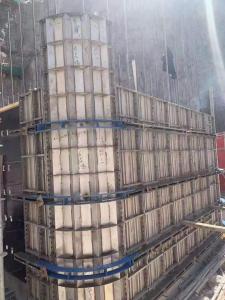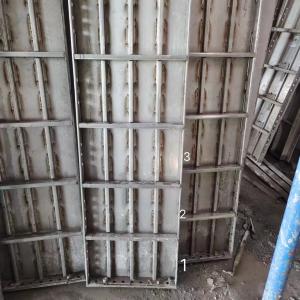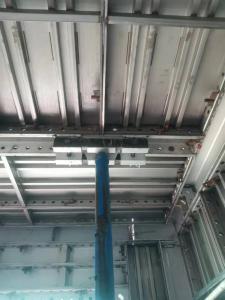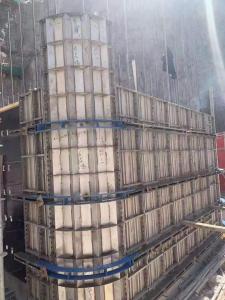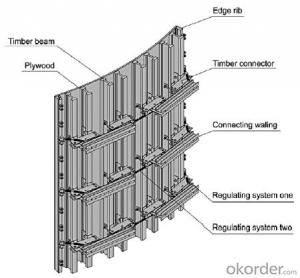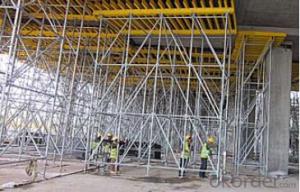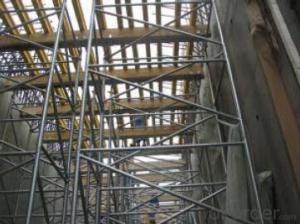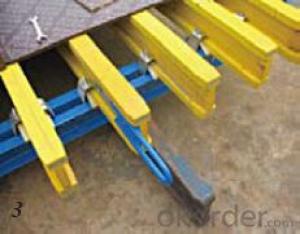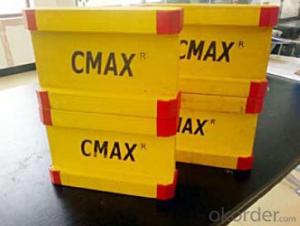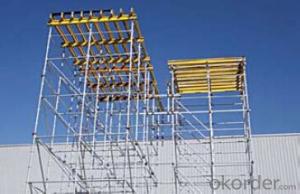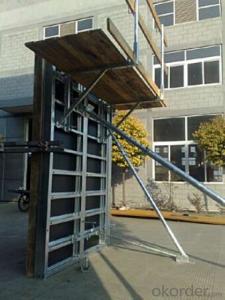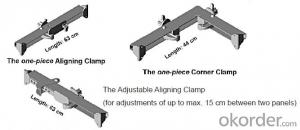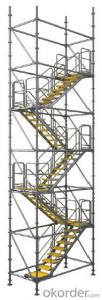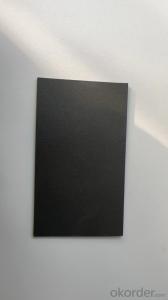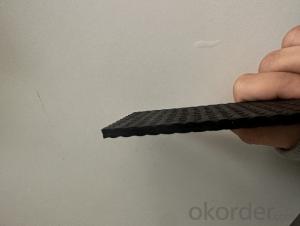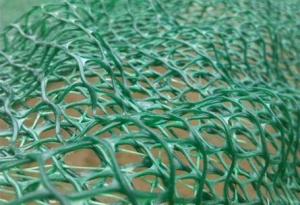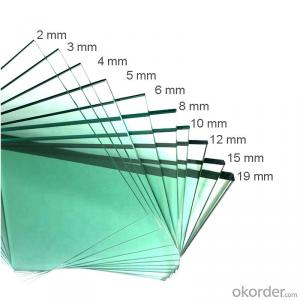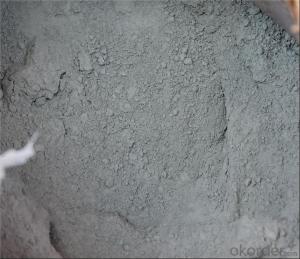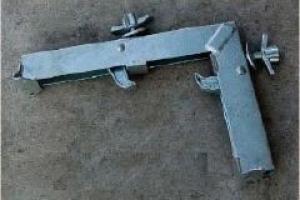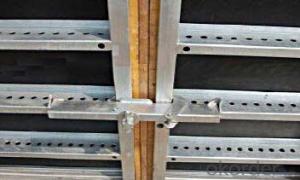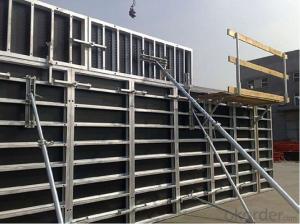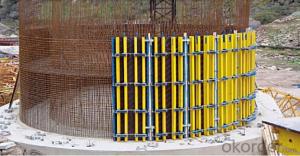Reliable supplier of stainless steel climbing formwork, Stainless Steel wall formwork
- Loading Port:
- Shanghai
- Payment Terms:
- TT or LC
- Min Order Qty:
- 1 set
- Supply Capability:
- 1000000 set/month
OKorder Service Pledge
OKorder Financial Service
You Might Also Like
Stainless steel formwork
Replaceable size aluminum formwork :400X1200mm , 400X1500mm
Advantages:
1 Stainless steel formwork, 100% follow the design of aluminum alloy formwork system, it is interchangeable, compatible and can be used together with aluminum formwork at the same time .
2It is made of high-strength stainless steel strip by rolling and laser welding. It has good corrosion resistance and high density,is not easy to rust and has no fire hazard.
3Long service life, many turnover times, high recycling value
The number of turnovers is large, especially the characteristics of no dust, no need to brush or less mold release agent, and the characteristics of low renovation costs will bring unlimited optimistic prospects to it.
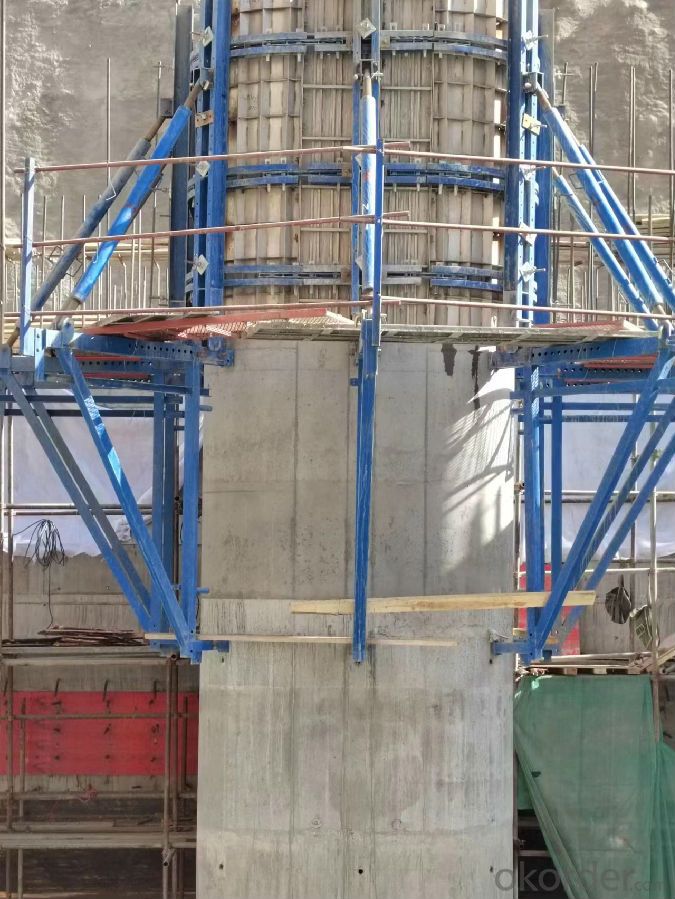
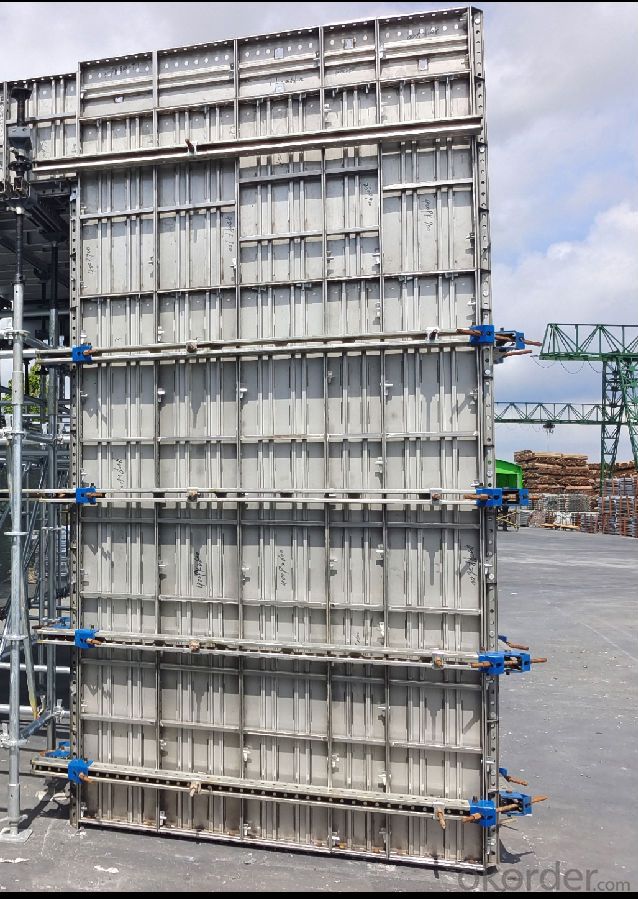
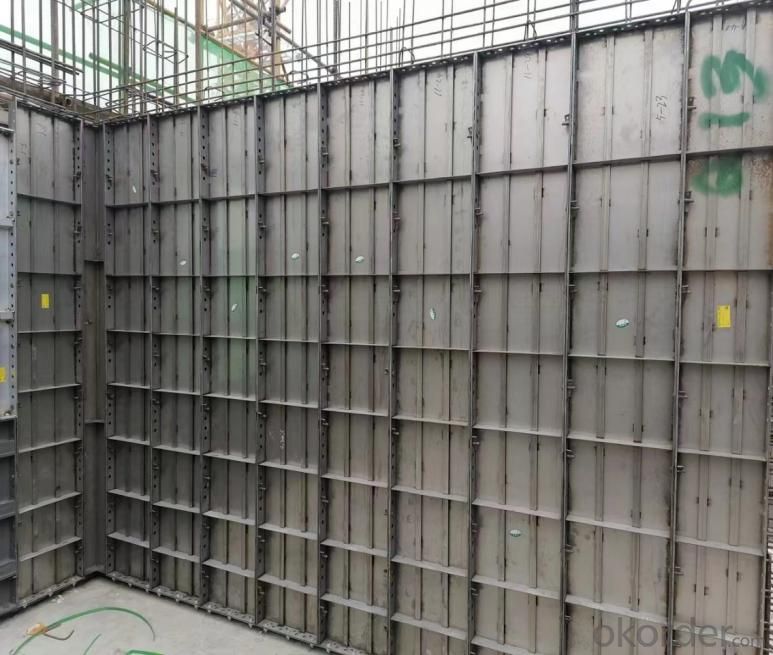
- Q:How does steel formwork affect the overall fire resistance of a building?
- Steel formwork does not directly affect the overall fire resistance of a building as it is primarily used for temporary structures during construction. The fire resistance of a building is determined by the materials used in its permanent structure, such as the type of steel used in the beams, columns, and fireproof insulation.
- Q:Can steel formwork be used for both straight and sloping structures?
- Yes, steel formwork can be used for both straight and sloping structures. Steel formwork is a versatile and flexible construction material that can be customized to fit various shapes and configurations. It can be easily adjusted and secured to create straight walls and columns. Additionally, with the use of specialized accessories and components, steel formwork can also be adapted to create sloping structures such as ramps, inclined walls, and curved surfaces. This flexibility and adaptability make steel formwork a preferred choice for construction projects with varying design requirements.
- Q:How does steel formwork handle different concrete surface protection methods?
- Steel formwork is highly versatile and can easily accommodate different concrete surface protection methods. It provides a strong and sturdy framework for the concrete, allowing for various surface protection techniques such as applying curing compounds, using membrane-forming curing compounds, or implementing surface retarders. Additionally, steel formwork can also withstand the pressure and temperature requirements of techniques like shotcrete or gunite application, further enhancing the concrete surface protection. Overall, steel formwork is compatible with a wide range of concrete surface protection methods, ensuring durable and high-quality results.
- Q:What are the common safety certifications for steel formwork systems?
- There are several common safety certifications for steel formwork systems that ensure the highest standards of safety and quality. Some of the most recognized certifications include: 1. ISO 9001: This certification ensures that the manufacturer of the steel formwork system follows a quality management system that meets international standards. It focuses on customer satisfaction, continuous improvement, and adherence to regulatory requirements. 2. OHSAS 18001: This certification is specific to occupational health and safety management systems. It demonstrates that the manufacturer has implemented effective safety policies, procedures, and controls to prevent work-related injuries and illnesses. 3. CE Marking: This certification is a mandatory requirement for steel formwork systems sold in the European Union (EU). It indicates that the product meets the essential health, safety, and environmental protection requirements set by EU legislation. 4. ANSI/ASSE A10.9: This American National Standards Institute (ANSI) standard provides guidelines for the design, use, and maintenance of formwork systems, including steel formwork. Compliance with this standard ensures that the system is safe and suitable for use in construction projects. 5. UL Certification: Underwriters Laboratories (UL) is a globally recognized safety certification organization. UL Certification for steel formwork systems signifies that the product has been tested and meets specific safety standards. It is important to note that the specific safety certifications required may vary depending on the country and region. Therefore, it is recommended to check the local regulations and standards applicable to the construction project before selecting a steel formwork system.
- Q:I would like to ask the bridge column (D110) steel template thickness should be how much
- The bridge column (D110) column die steel template if the combination of the steel mold, the control panel in 3-5mm more appropriate, to determine the main force depends on the template and rib spacing, material selection.
- Q:Can steel formwork be used in areas with extreme temperature variations?
- Steel formwork is indeed capable of being utilized in regions with significant temperature fluctuations. Thanks to its high strength-to-weight ratio and resistance to thermal changes, steel is well-suited for diverse conditions. It can endure both high and low temperatures without experiencing structural deformity or deterioration. Moreover, steel formwork delivers exceptional stability and durability, guaranteeing its ability to withstand the strain caused by extreme temperature fluctuations. However, it is crucial to take into account the effects of thermal expansion and contraction when employing steel formwork in areas with substantial temperature variations, as these factors may influence the precision of the formwork and the ultimate concrete structure. By considering proper design aspects and employing appropriate installation techniques, any potential issues arising from temperature variations can be effectively managed.
- Q:How much weight can steel formwork support?
- The weight capacity of steel formwork is influenced by several factors, including the thickness and type of steel, the formwork's design and construction, and the support system in place. Steel formwork is renowned for its strength and durability, making it capable of withstanding heavy loads. Typically, steel formwork can bear a substantial amount of weight, ranging from a few hundred kilograms to several tonnes. However, it is crucial to ensure that the formwork is appropriately designed, installed, and supported in order to safely accommodate the intended load. To determine the precise weight capacity of the steel formwork being used, it is advisable to consult with structural engineers or adhere to the manufacturer's guidelines.
- Q:What are the common maintenance practices for steel formwork?
- To ensure the steel formwork's optimal performance, various maintenance practices should be followed. These include regular cleaning and inspection, lubrication of movable parts, repair of any damage or wear, and appropriate storage when not in use. To maintain cleanliness, it is crucial to remove any concrete residue, dirt, or debris that may accumulate on the formwork. This can be achieved by using water, a mild detergent, and a stiff brush. Caution should be exercised to avoid abrasive materials or chemicals that may harm the steel. It is necessary to conduct routine inspections to identify signs of wear, damage, or corrosion. This should be done both before and after each use of the formwork. Any cracks, deformations, or loose parts should be promptly repaired or replaced to ensure the formwork remains safe and functional. Lubricating moving parts, such as hinges, locks, and adjustable components, is of utmost importance to guarantee smooth operation. Applying a suitable lubricant to these parts helps prevent rust, corrosion, and sticking. This practice helps maintain the formwork's functionality and ease of use. Repairing any damage or wear is vital to uphold the structural integrity of the formwork. Swift action should be taken to repair any cracks or deformations using appropriate methods like welding or reinforcing. Damaged parts must be replaced with new ones to uphold the formwork's strength and stability. Proper storage is essential to prolong the lifespan of steel formwork and prevent damage. It should be stored in a dry and well-ventilated area to avoid corrosion. Additionally, formwork should be stacked or stored in a manner that prevents distortion or bending of the steel components. Furthermore, protecting the formwork from moisture and excessive heat is crucial to avoid potential damage. By adhering to these common maintenance practices, the steel formwork can be preserved in excellent condition, ensuring its durability and reliability for future use.
- Q:How does steel formwork handle concrete temperature differentials?
- Steel formwork is a popular choice for concrete construction due to its durability and strength. When it comes to handling concrete temperature differentials, steel formwork offers several advantages. Firstly, steel has a high coefficient of thermal conductivity, meaning it can quickly absorb and distribute heat. This property allows steel formwork to efficiently dissipate the heat generated during the hydration process of concrete. As a result, steel formwork helps to minimize the risk of thermal cracking caused by temperature differentials. Furthermore, steel formwork is known for its dimensional stability. Unlike other materials like wood, steel does not expand or contract significantly with temperature changes. This stability ensures that the formwork maintains its shape and integrity, even when exposed to varying concrete temperatures. It helps to prevent any distortions, warping, or bulging that could affect the quality and appearance of the concrete structure. Additionally, steel formwork is resistant to fire and high temperatures, making it suitable for handling concrete that undergoes rapid temperature changes, such as in hot weather conditions or during the curing process. Its ability to withstand extreme temperatures without deforming or losing its structural integrity ensures that the formwork remains intact and provides the necessary support and containment for the concrete. In summary, steel formwork effectively handles concrete temperature differentials by efficiently dissipating heat, maintaining dimensional stability, and withstanding high temperatures. These properties contribute to the overall quality and durability of the concrete structure, while minimizing the risk of thermal cracking and other issues caused by temperature variations.
- Q:How does steel formwork affect the construction schedule?
- Steel formwork can greatly affect the construction schedule in a positive way. Due to its strength and durability, steel formwork allows for faster and more efficient construction processes. This results in reduced construction time and faster completion of the project. Additionally, steel formwork is reusable, which further saves time and resources as it can be quickly dismantled and used for future construction projects.
1. Manufacturer Overview |
|
|---|---|
| Location | |
| Year Established | |
| Annual Output Value | |
| Main Markets | |
| Company Certifications | |
2. Manufacturer Certificates |
|
|---|---|
| a) Certification Name | |
| Range | |
| Reference | |
| Validity Period | |
3. Manufacturer Capability |
|
|---|---|
| a)Trade Capacity | |
| Nearest Port | |
| Export Percentage | |
| No.of Employees in Trade Department | |
| Language Spoken: | |
| b)Factory Information | |
| Factory Size: | |
| No. of Production Lines | |
| Contract Manufacturing | |
| Product Price Range | |
Send your message to us
Reliable supplier of stainless steel climbing formwork, Stainless Steel wall formwork
- Loading Port:
- Shanghai
- Payment Terms:
- TT or LC
- Min Order Qty:
- 1 set
- Supply Capability:
- 1000000 set/month
OKorder Service Pledge
OKorder Financial Service
Similar products
New products
Hot products
Hot Searches
Related keywords
